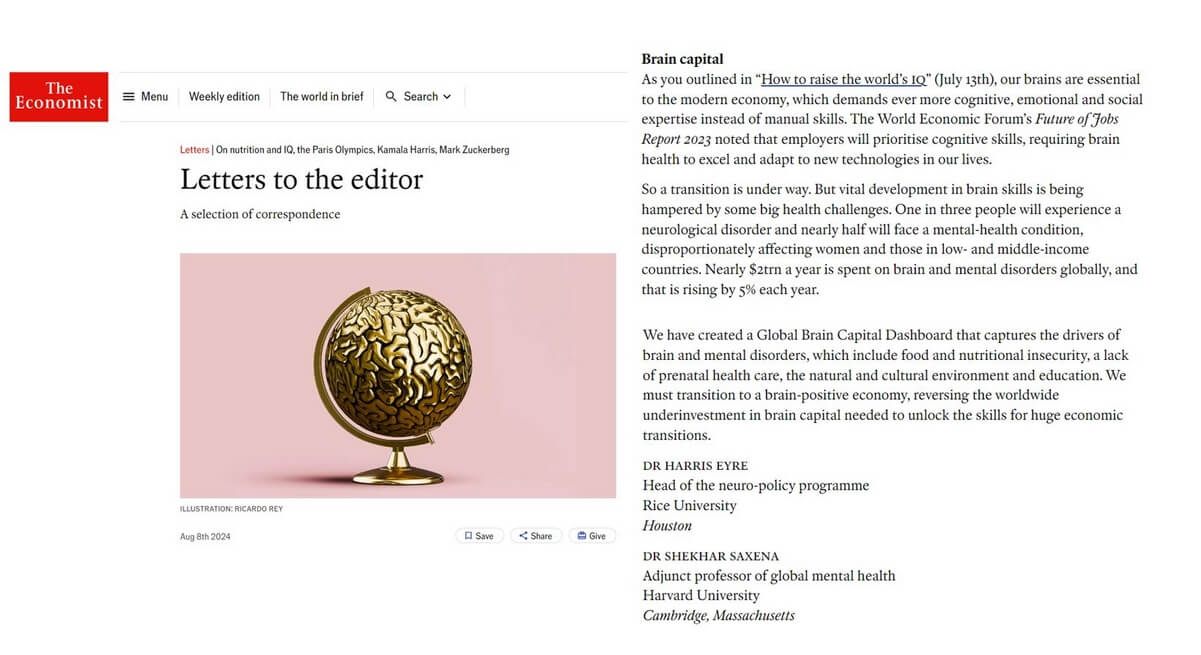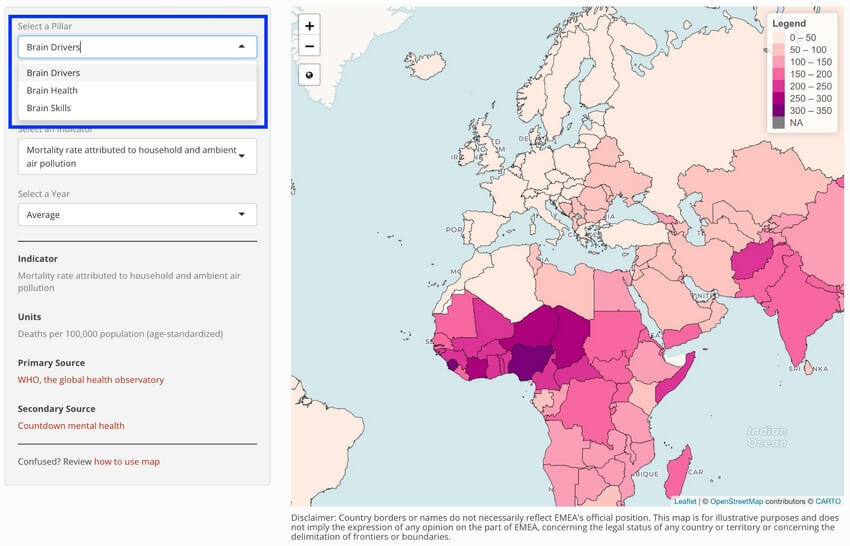August 8, 2024: Today in the new edition of The Economist, brain capital was profiled in the letters to the editor section. The article was published by EMEA Advisor, Harris Eyre, Lead of the Neuro-Policy Program at Rice University’s Baker Institute for Public Policy, and EMEA Brain Capital Dashboard Working Group member, Shekhar Saxena, adjunct professor of global mental health at Harvard University.
The letter to the editor outlined:
As you outlined in “How to raise the world’s IQ” (July 13th), our brains are essential to the modern economy, which demands ever more cognitive, emotional and social expertise instead of manual skills. The World Economic Forum’s Future of Jobs Report 2023 noted that employers will prioritise cognitive skills, requiring brain health to excel and adapt to new technologies in our lives.
So a transition is under way. But vital development in brain skills is being hampered by some big health challenges. One in three people will experience a neurological disorder and nearly half will face a mental-health condition, disproportionately affecting women and those in low- and middle-income countries. Nearly $2trn a year is spent on brain and mental disorders globally, and that is rising by 5% each year.
We have created a Global Brain Capital Dashboard that captures the drivers of brain and mental disorders, which include food and nutritional insecurity, a lack of prenatal health care, the natural and cultural environment and education. We must transition to a brain-positive economy, reversing the worldwide underinvestment in brain capital needed to unlock the skills for huge economic transitions.
The Global Brain Capital Dashboard was constructed by EMEA with support from a working group of global experts. It was recently profiled by The Brookings Institution.
Rym Ayadi, Founder and President of EMEA noted, “The Brain Capital Dashboard is a groundbreaking tool that highlights the crucial role of brain health, alongside cognitive, emotional, and social assets, in driving productivity, innovation, and sustainable development. By focusing on brain capital, this dashboard equips policymakers with the insights needed to cultivate environments where human potential thrives, ensuring resilient, productive, and prosperous societies.”
To build the complete Dashboard, novel indicators were extracted from a wide range of data sources under the banner of three pillars: Brain Capital Drivers, Brain Health, and Brain Skills. Brain Capital Drivers refers to the factors that boost or impede the accumulation of brain capital throughout the life course. Some of these factors include digitalization, health services, the natural environment, education, and social connections. Brain Health examines the mental and neurological health of the population at scale. The domain chronicles the absence of disorders, as well as different issues throughout the human lifespan (childhood, adolescence, and aging-related issues). The Brain Skills domain captures key areas for the accumulation of Brain Capital such as cognitive skills, non-cognitive skills, mental flourishing, and mental resilience.
The Global Brain Capital Dashboard is noted in the Yaounde Declaration for the Brain Economy, Brain Health, and Brain Capital which is being advanced with Cameroonian stakeholders in the lead up the the United Nations General Assembly which the Cameroon Government will chair.






